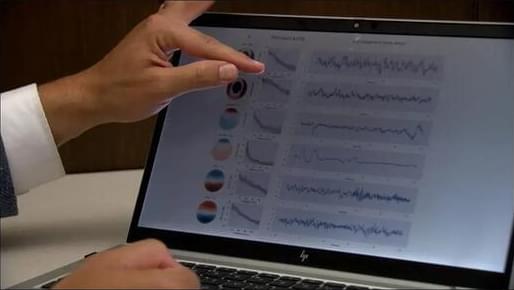ROCHESTER, Minn. — Mayo Clinic scientists are using artificial intelligence (AI) and machine learning to analyze electroencephalogram (EEG) tests more quickly and precisely, enabling neurologists to find early signs of dementia among data that typically go unexamined.
The century-old EEG, during which a dozen or more electrodes are stuck to the scalp to monitor brain activity, is often used to detect epilepsy. Its results are interpreted by neurologists and other experts trained to spot patterns among the test’s squiggly waves.
In new research published in Brain Communications, scientists at the Mayo Clinic Neurology AI Program (NAIP) demonstrate how AI can not only speed up analysis, but also alert experts reviewing the test results to abnormal patterns too subtle for humans to detect. The technology shows the potential to one day help doctors distinguish among causes of cognitive problems, such as Alzheimer’s disease and Lewy body dementia. The research suggests that EEGs, which are more widely available, less expensive and less invasive than other tests to capture brain health, could be a more accessible tool to help doctors catch cognitive issues in patients early.










Leave a reply